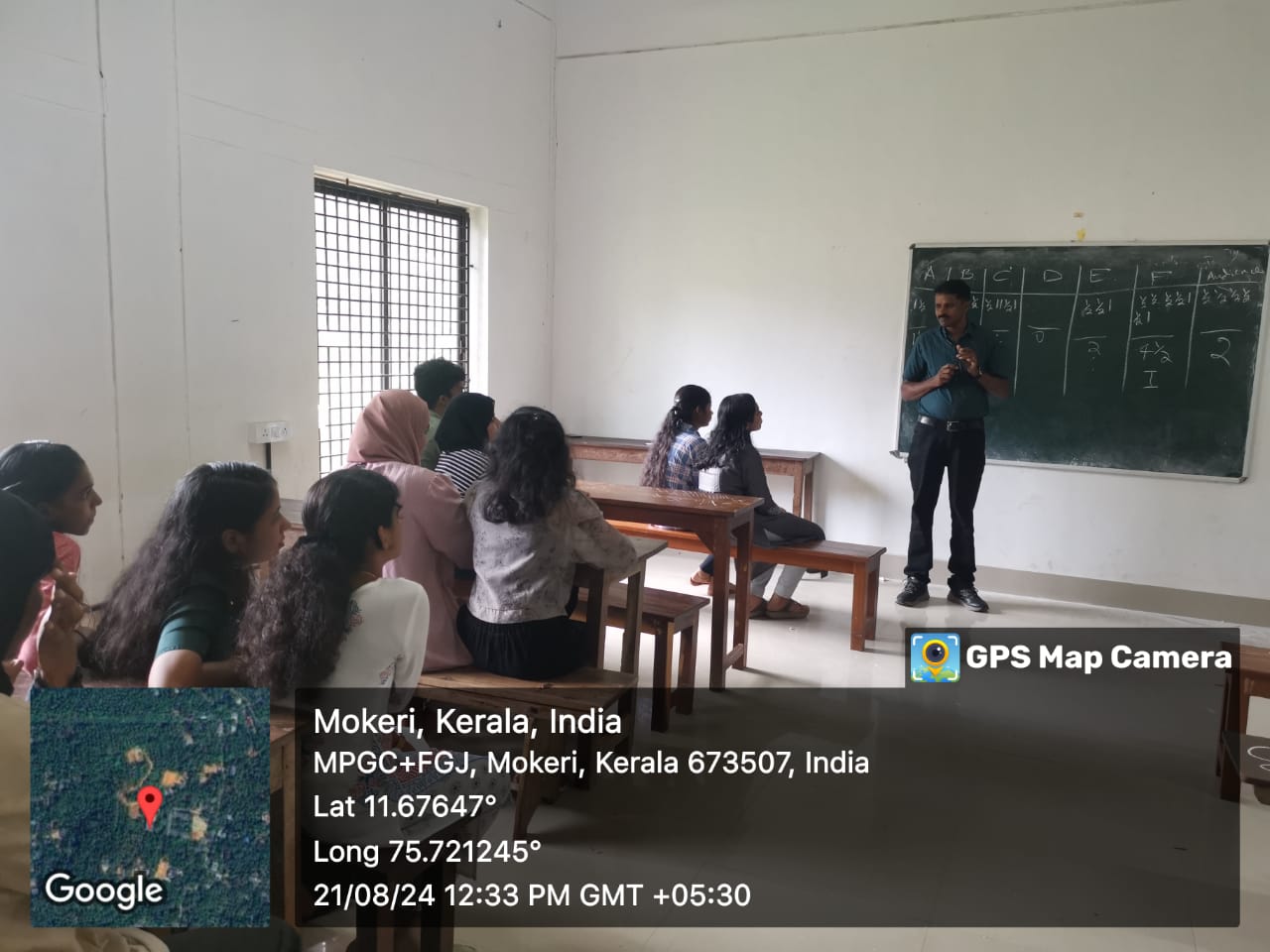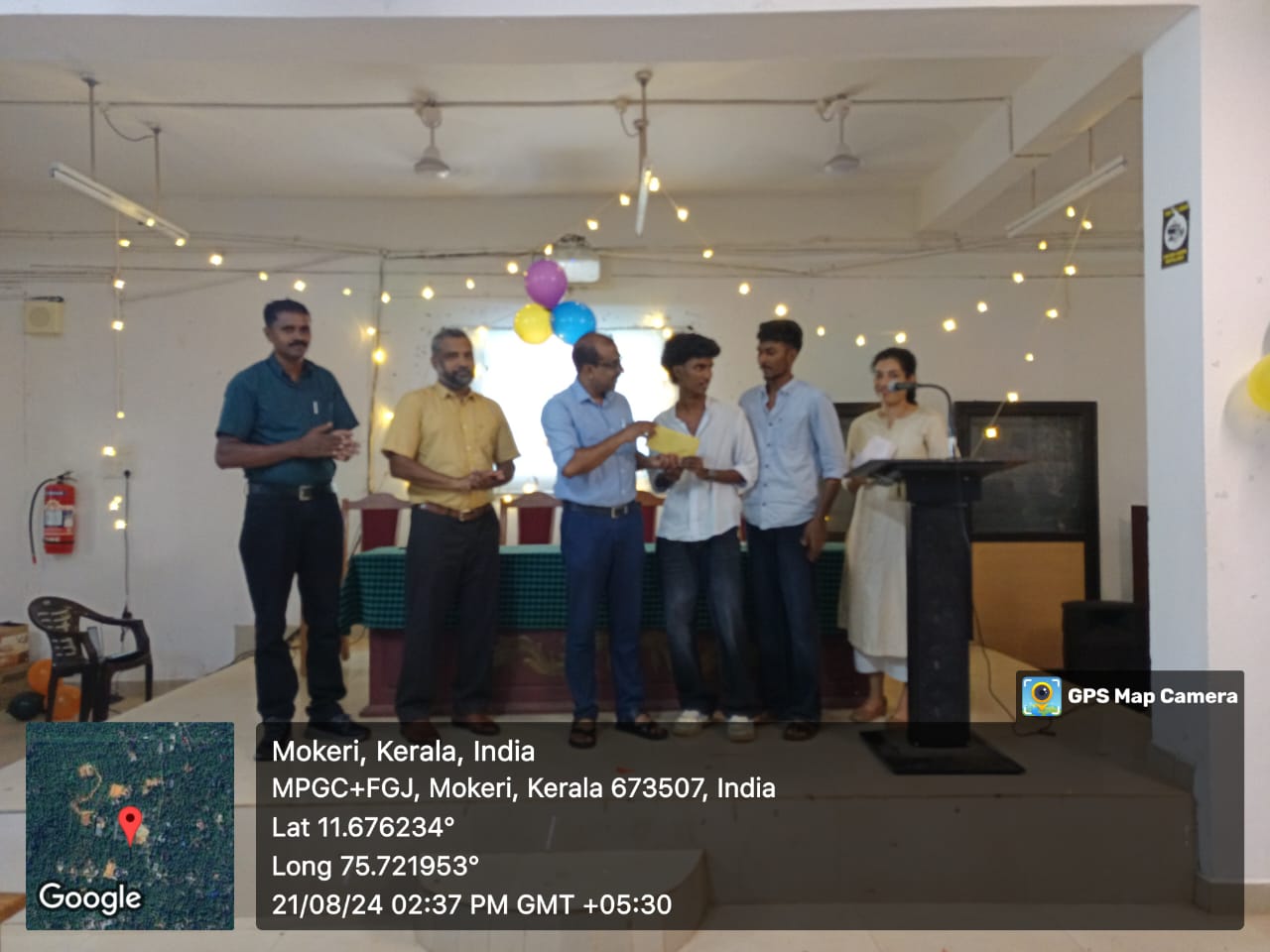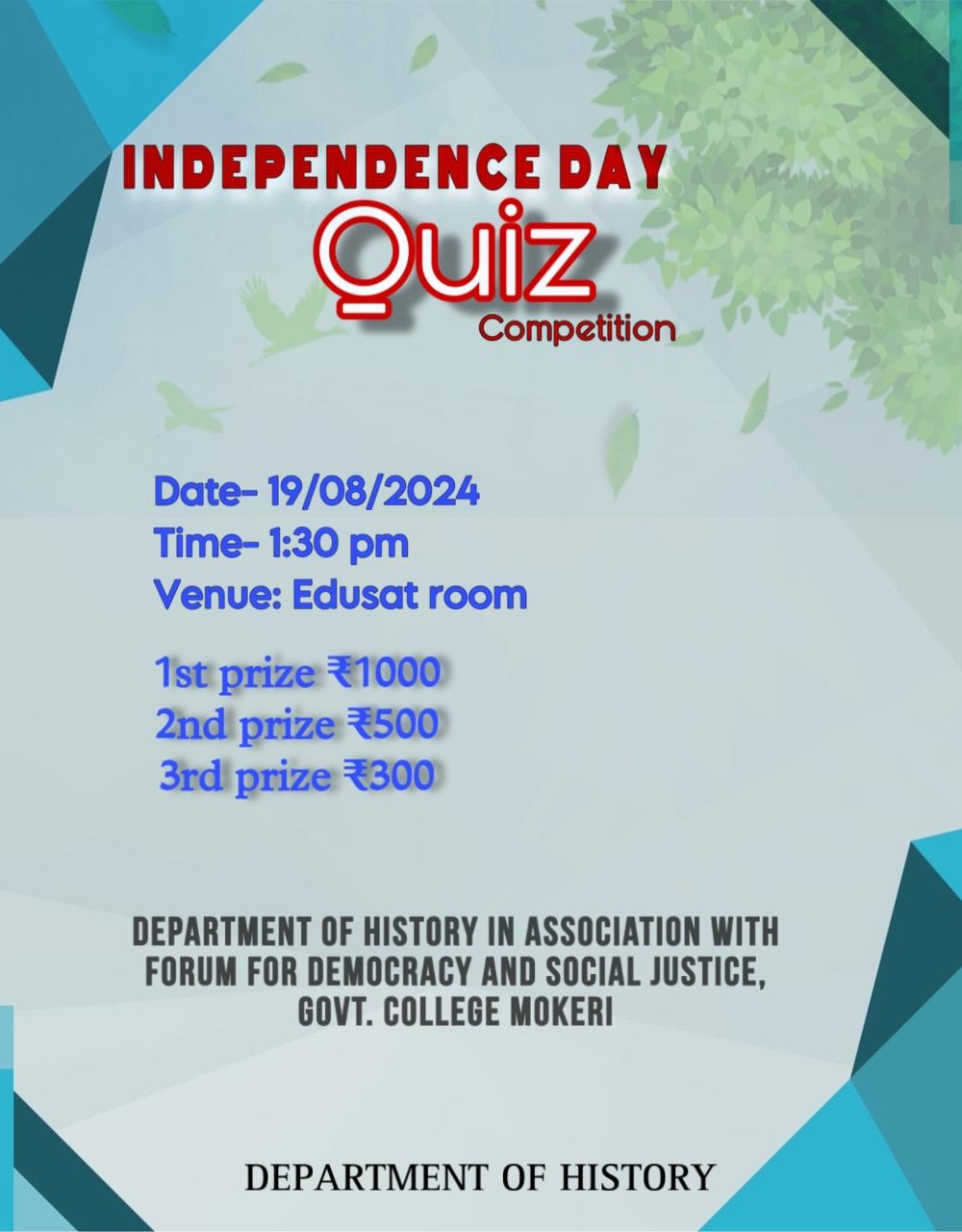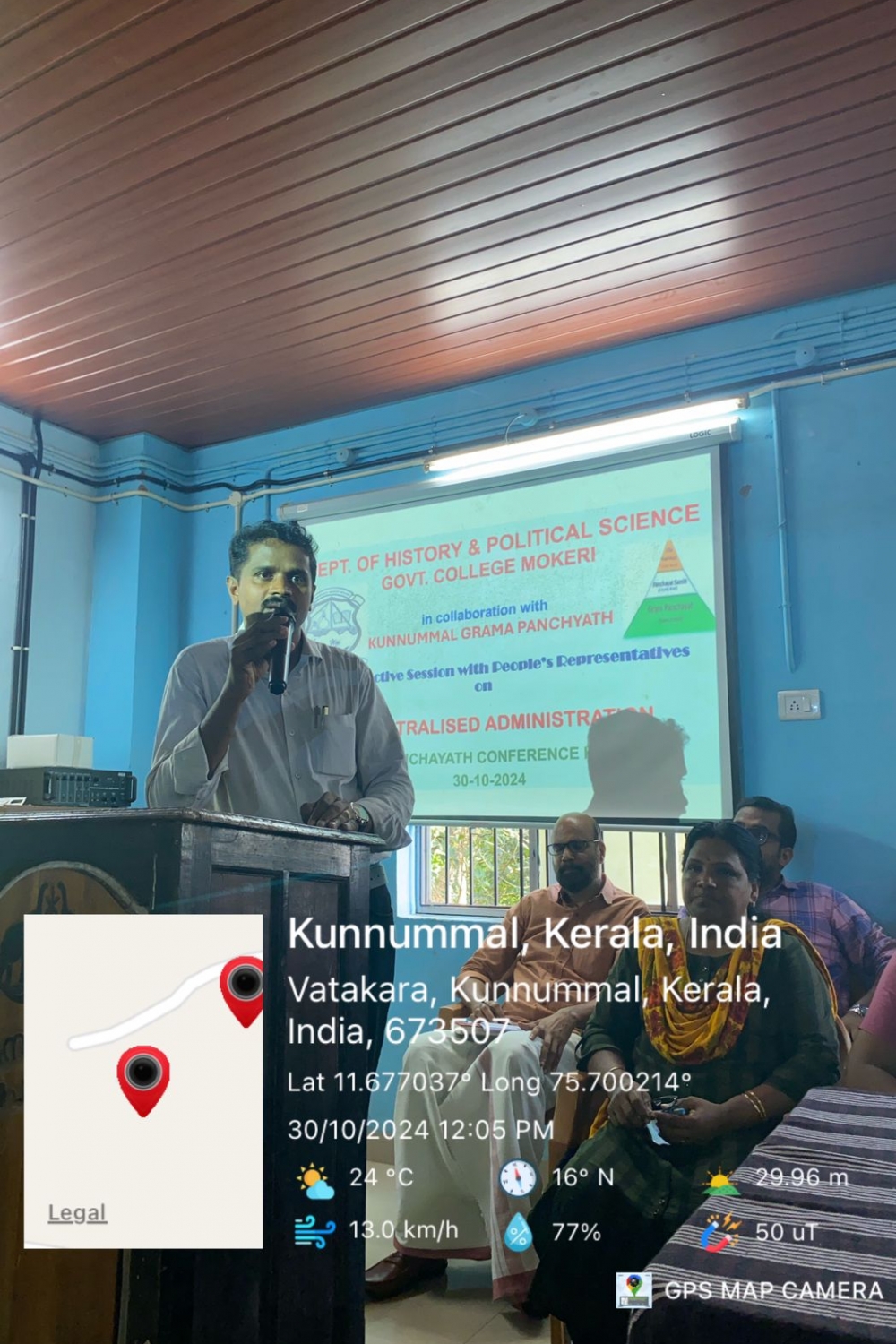|
The Department of Political Science at Government College, Mokeri, was established in 1991 to fulfill the curricular requirements of the third group Pre-Degree program. Over the years, it has evolved into a vital component of the institution’s academic offerings, significantly contributing to the History graduate program by providing a complementary paper.
In the academic year 2024-2025, the department broadened its academic scope under the Four-Year Undergraduate Programme (FYUGP) by introducing two Minor Courses—Indian Constitution and Human Rights. This initiative received an enthusiastic response, with approximately 23% of newly enrolled students opting for these courses as their Minor.
Dedicated to promoting academic excellence and fostering critical thinking, the Department of Political Science plays a pivotal role in preparing students for intellectual growth and active participation in civic life. Through its innovative approach and commitment to societal relevance, the department continues to mold students into informed and responsible citizens capable of addressing the complexities of the modern world.
Vision
To provide quality education and build a society of informed, responsible, law-abiding citizens who actively promote democratic values, constitutional morality, and social justice. By fostering tolerance, critical thinking, and civic engagement, the department aims to empower individuals to strengthen and uphold the democratic fabric of society.
Mission
1. To foster a learning environment that promotes tolerance, inclusivity, and respect for diverse perspectives.
2. To instill democratic values and encourage a commitment to equality, liberty, and justice.
3. To shape ethical and knowledgeable citizens capable of active participation in civic and political life.
4. To promote constitutional awareness by educating students about the rights, duties, and responsibilities outlined in the Constitution.
5. To prepare students for successful careers in academia, governance, civil services, public policy, and related fields.
6. To emphasize the significance of political and electoral participation among youth, highlighting the pervasive influence of the political system and government policies on society.
7. To advance academic excellence and critical thinking through innovative teaching, research, and community engagement, equipping students to address modern political and social challenges.
|











